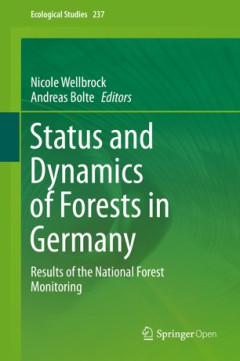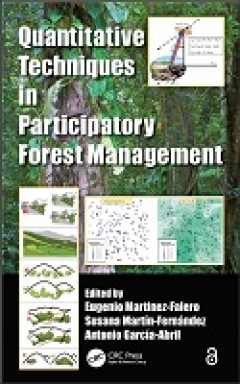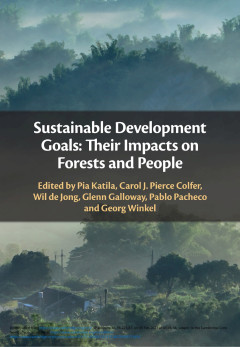Ditapis dengan

Political ecology of REDD+ in Indonesia :agrarian conflicts and forest carbon
Indonesia’s commitment to reducing land-based greenhouse gas emissions significantly includes the expansion of conservation areas, but these developments are not free of conflicts. This book provides a comprehensive analysis of agrarian conflicts in the context of the implementation of REDD+ (Reducing Emissions from Deforestation and Forest Degradation) and forest carbon offsetting in Indones…
- Edisi
- -
- ISBN/ISSN
- 9781138479319
- Deskripsi Fisik
- x, 219p. : ill.
- Judul Seri
- -
- No. Panggil
- 333.75 HEI p

Status and dynamics of forests in Germany :results of the National Forest Mon…
Forest ecosystems in Central Europe are changing as a result of anthropogenic influences and changing climate conditions. As such, a large-scale monitoring programme was undertaken in order to understand the influence of site modification, deposition of air pollutants, and climate. This book presents the scientific findings of this study for Germany, including the major challenges with regar…
- Edisi
- -
- ISBN/ISSN
- 9783030157340
- Deskripsi Fisik
- x, 384p. : ill.
- Judul Seri
- -
- No. Panggil
- 634.90943 STA s

Quantitative techniques in participatory forest management
Forest management has evolved from a mercantilist view to a multi-functional one that integrates economic, social, and ecological aspects. However, the issue of sustainability is not yet resolved. Quantitative Techniques in Participatory Forest Management brings together global research in three areas of application: inventory of the forest variables that determine the main environmental indice…
- Edisi
- -
- ISBN/ISSN
- 1466569255
- Deskripsi Fisik
- XX, 588 p.
- Judul Seri
- -
- No. Panggil
- 333.750151 QUA q

Sustainable development goals :their impacts on forests and people
Forests provide vital ecosystem services crucial to human well-being and sustainable development, and have an important role to play in achieving the seventeen Sustainable Development Goals (SDGs) of the United Nations 2030 Agenda. Little attention, however, has yet focused on how efforts to achieve the SDGs will impact forests and forest-related livelihoods, and how these impacts may, in turn,…
- Edisi
- -
- ISBN/ISSN
- 9781108765015
- Deskripsi Fisik
- xxxiv, 617p. : ill
- Judul Seri
- -
- No. Panggil
- 634.90286 SUS s

Invasive species in forests and rangelands of the United States :a comprehens…
This open access book describes the serious threat of invasive species to native ecosystems. Invasive species have caused and will continue to cause enormous ecological and economic damage with ever increasing world trade. This multi-disciplinary book, written by over 100 national experts, presents the latest research on a wide range of natural science and social science fields that explore the…
- Edisi
- -
- ISBN/ISSN
- 9783030453671
- Deskripsi Fisik
- xlii, 455p. : ill.
- Judul Seri
- -
- No. Panggil
- 577 INV i
 Karya Umum
Karya Umum  Filsafat
Filsafat  Agama
Agama  Ilmu-ilmu Sosial
Ilmu-ilmu Sosial  Bahasa
Bahasa  Ilmu-ilmu Murni
Ilmu-ilmu Murni  Ilmu-ilmu Terapan
Ilmu-ilmu Terapan  Kesenian, Hiburan, dan Olahraga
Kesenian, Hiburan, dan Olahraga  Kesusastraan
Kesusastraan  Geografi dan Sejarah
Geografi dan Sejarah